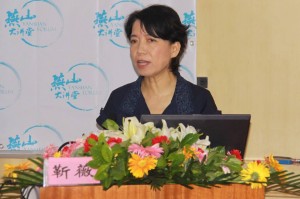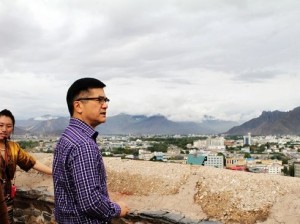Is China beginning to re-evaluate its Tibet policy? This could be a future possibility. In a recent interview with Asia Weekly, Jin Wei, director of ethnic and religious studies at the Central Party School, a think-tank in Beijing, stated that the Communist Party needs to reassess its strategy for Tibet.
The current Communist Party approach to the Tibet issue involves the promise of economic development and the repression of Tibetan political and cultural expression. This repression includes the use of stifling surveillance. Since April 2012, a grid surveillance system has been used to monitor Tibetans, first in Lhasa and now across most of the Tibet Autonomous Region. According to Human Rights Watch, grid surveillance consists of the construction of “convenience police-posts” with high-tech equipment to monitor the daily activities of Tibetans and to suppress potential displays of dissent.
Ms Jin follows the standard Party belief that Tibet is part of China. However, when interviewed, she stated that categorising every expression of Tibetan culture as subversive alienates Tibetans who may have otherwise been sympathetic to the Communist Party’s goals. Ms Jin also suggested that former party chiefs in Tibet are “biased against the practice of religious affairs” which “foreshadowed the accumulation of grievances today”.
Ms Jin indicated that a new approach to the Tibet issue is necessary. She recommended that China should resume talks with the Dalai Lama’s representatives. Jin also suggested inviting His Holiness to visit one of China’s semi-autonomous cities and to eventually allow him to return to Tibet.
While Ms Jin’s comments may not foreshadow immediate policy changes, they are significant. The fact that Jin shared her views publicly implies that she has high-level support. Furthermore, her interview demonstrates that, within China, discussions regarding the government’s policies in Tibet have re-emerged.





 Print
Print Email
Email